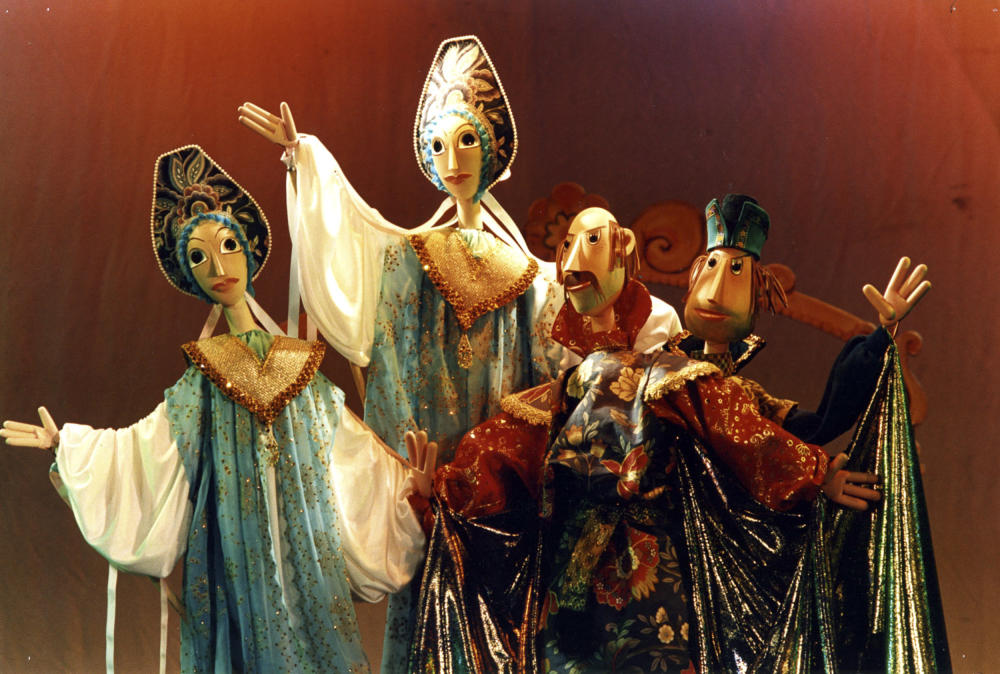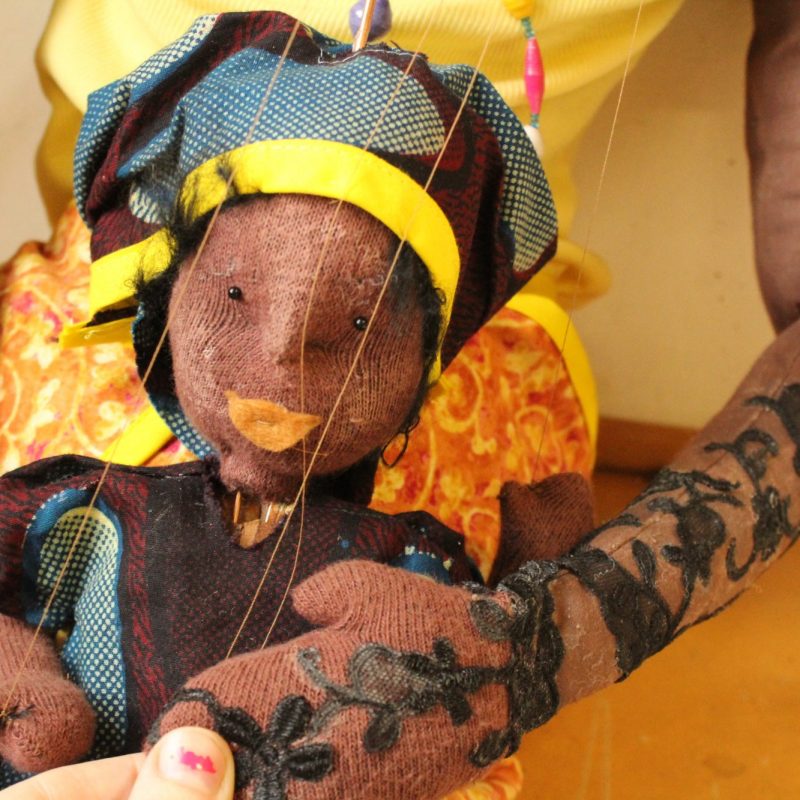Nottingham Puppet Festival’s Commitment to CN28 and Theatre Green Book Principles
2024 sees the third iteration of the Nottingham Puppet Festival, and whilst at its heart lies a huge celebration of the art of puppetry, entertainment, artist development, cultural experiences for everyone and a joyful collaboration between culture and arts venues in Nottingham, it isn’t just about all of those things; it’s a platform for sustainable practices and artistic expression, and an opportunity for us to create a best practice case study to inform future work. As part of our commitment to sustainability, our city and communities, we are aligning with CN28 targets and Theatre Green Book Principles.
Puppetry: An Art Form with Purpose
Puppetry, with its centuries-old tradition, is more than entertainment. It is a powerful medium for storytelling, capable of transcending language barriers and cultural divides. From giant walkabout puppets to intricate shadow plays, puppetry encompasses a wide array of techniques, each with its own unique charm.

However, beyond this, puppetry has the potential to convey important messages, including those of sustainability and environmental stewardship. The Nottingham Puppet Festival harnesses the magic of puppetry to not only captivate audiences but also to inspire positive change. Puppetry has always adapted to reflect not only history, heritage and storytelling, but also to encompass cultural and societal relevance. Side-by-side with the puppet festival’s cultural aims, are our aims to promote sustainable practice and environmental awareness, as well as checking in with our own work as venues across the city.
Meeting CN28 Targets
Nottingham’s ambition is to become the first carbon neutral city in the UK by 2028 (CN28) In order to achieve this, everyone needs to play their part, and so we are working under the targets which outline crucial steps toward combating climate change and building a sustainable future. These targets encompass various aspects, from reducing carbon emissions to promoting eco-friendly practices in all sectors, including the arts.
The Nottingham Puppet Festival has embraced this challenge wholeheartedly, integrating sustainability into every aspect of its operations. From the materials used in puppet construction to the logistics of the event itself, sustainability is a guiding principle.
1. Sustainable Materials:
One of the festival’s key initiatives is the use of sustainable materials in puppet construction. From recycled fabrics to biodegradable components, puppet makers are encouraged to minimise their environmental footprint without compromising on creativity.
2. Eco-friendly Practices:
In addition to puppet construction, the festival prioritises eco-friendly practices in all areas of production. This includes minimising waste, promoting recycling and composting, and reducing energy consumption wherever possible. Artists are being asked comprehensive questions regarding their environmental practice, and assessing how materials are re-used or recycled.
3. Carbon Neutrality:
To further its commitment to sustainability, the festival is asking questions about how we reduce our carbon emissions. Each venue is completing a waste management survey for each show or activity, and our audiences are encouraged to fill in a short online questionnaire, which can be found by scanning a QR code in the venues for each show, so that we can assess the impact of the festival on transport and emissions.
The Theatre Green Book Principles serve as a roadmap for the performing arts industry, guiding organisations toward a more sustainable and socially responsible future. These principles cover a wide range of topics, including energy efficiency, waste reduction, and community engagement.
The Nottingham Puppet Festival is working under the guidance of these principles embodying the spirit of environmental stewardship and social responsibility in its endeavours.
We are working under the parameters of environmental responsibility, considerate materials usage, waste management and responsible travel.
Under these principles, we are also committed to:
Social Equity:
The festival places a strong emphasis on social equity, ensuring that its events are accessible to all members of the community. This includes offering free or low-cost performances where possible, collating feedback and evaluation to inform future planning, and promoting and recording diversity and inclusion in all aspects of the festival.
Economic Viability:
In addition to its environmental and social initiatives, the festival recognises the importance of economic viability. By supporting local artists and businesses, as well as fostering partnerships with community organisations, the festival contributes to the economic prosperity of the region.
Puppets for Change
Everything that we do as a society has an environmental impact, but The Nottingham Puppet Festival demonstrates that sustainability and artistry can coexist. Through its initiatives, it not only entertains but also seeks to inspire positive change.
Our commitment is to evaluate and understand the impact that we have on our local infrastructure, community, artists, venues and environment, and take those lessons to create a best practice model that can inform festival and event planning in the city into the future.
As we look to the future, the Nottingham Puppet Festival continues to harness the power of puppetry for the greater good. For in the hands of skilled puppeteers, even the smallest of figures can spark a revolution.
By Rebecca Morris
Nottingham Puppet Festival Production Team
Environmental and Sustainable Practice Lead
